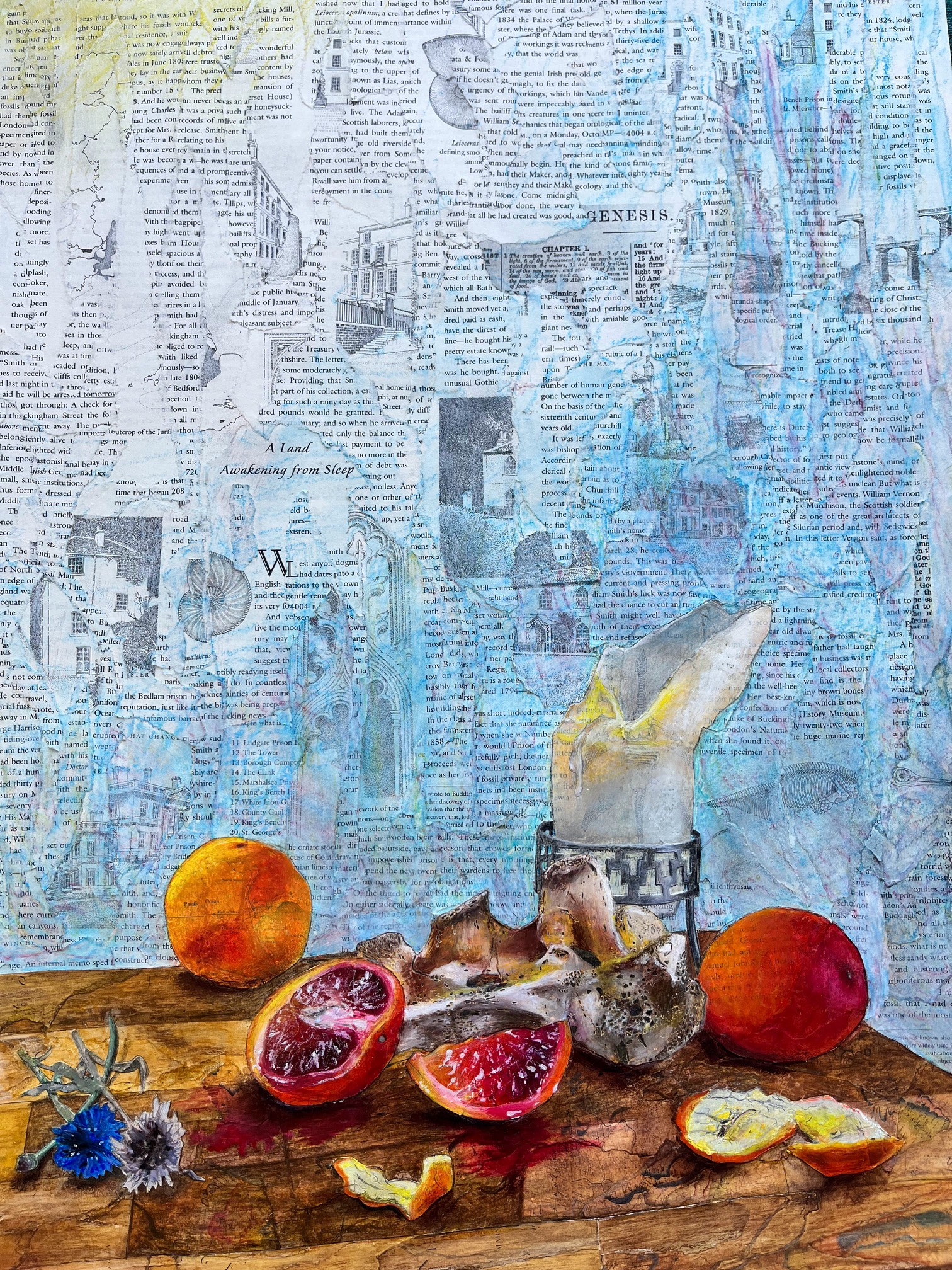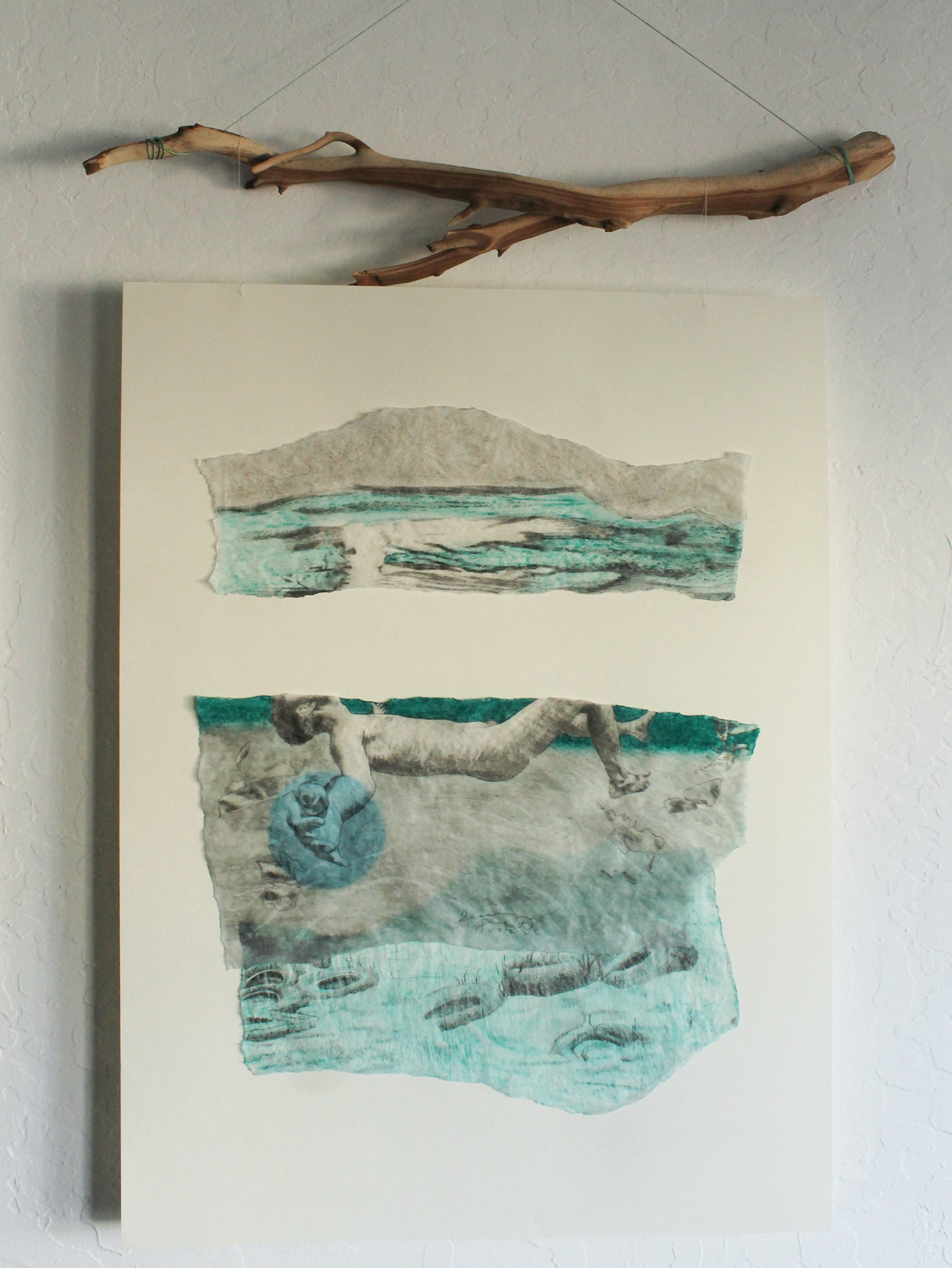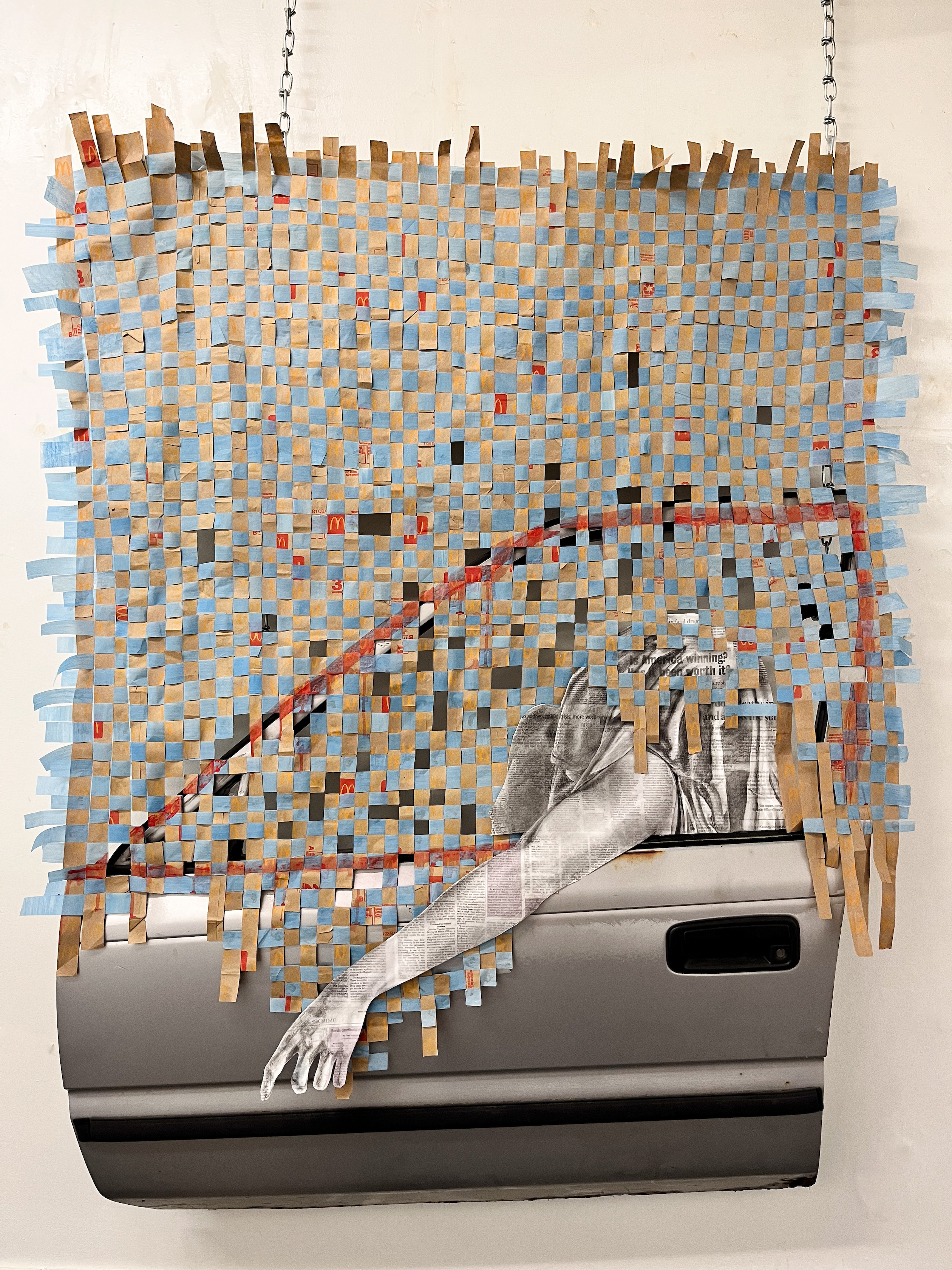The following video shows viewers' responses to the prompt on the writing desk in the installation: "How do you feel when you think about the future of the planet? What are your fears? Hopes? Dreams?"
The ___ is falling
7’0 x 4’9” x 8’8” | 2023 | Mixed media installation: cut paper, chalk pastel, and charcoal drawings, found objects, MP5 gas mask
7’0 x 4’9” x 8’8” | 2023 | Mixed media installation: cut paper, chalk pastel, and charcoal drawings, found objects, MP5 gas mask
This piece is inspired by my dad's obsession with conspiracy theories. As a child, his frequent predictions of the end of the world used to scare me. It's easy to feel powerless in the face of impending doom. With this work, I want to show viewers that they still have a role to play in the fight to restore and protect the environment for future generations.
Hearing about climate change and the highly-charged political debates around it makes me feel trapped in fear, dreadful anticipation, and despair. The world seems to be collapsing in on itself. But the idea of seeing yourself reflected in a breaking sky is meant to remind you that we, who live today, can still take action.
According to the American Psychological Association (APA), people with certain psychological factors are more likely to be drawn to conspiracy theories. These factors include the desire for certainty in an uncertain world, the desire for autonomy in an unsafe world, and the need for control over their circumstances, as well as social motivations like feeling alienated or superior to others (Jan 2021). They don't want to believe that terrible things just happen; they want to believe that nefarious individuals or groups are behind it all.
I find environmental conspiracies particularly interesting. An article from the Smithsonian Air and Space Museum highlights two contrasting conspiracies: "...that scientists, politicians, and others are trying to convince the world of global warming and thereby force changes in the economy and lifestyle," and its counter-conspiracy, "...that a well-organized conspiracy exists to defeat belief in global warming and thereby ensure that nothing of significance changes" (2010).
I may never convince my dad that global warming is a real threat. However, I can see for myself that the 40 years of toxic pollution in the tap water in my hometown made our friends and neighbors sick, and that poison like that in other environments – in our shared atmosphere – impacts all species, including humans. I can demonstrate to him that the asthma we both struggle with worsens with worsening air quality, when the smoke from forest fires blots out the sun. I can feel that the terrible things that “just happen” are already here. I can choose to believe the cumulative weight of evidence confirming that my choices as an individual still matter: how I use energy and resources, how I travel, how I vote, and how I respond to the suffering of others affected by climate degradation.
American Psychological Association. (Jan 2021). Speaking of psychology: Conspiracy theories. Retrieved from https://www.apa.org/news/podcasts/speaking-of-psychology/conspiracy-theories
Smithsonian Air and Space Museum. (2010). What are your favorite aerospace history conspiracy theories? Retrieved from https://airandspace.si.edu/stories/editorial/what-are-your-favorite-aerospace-history-conspiracy-theories
Hearing about climate change and the highly-charged political debates around it makes me feel trapped in fear, dreadful anticipation, and despair. The world seems to be collapsing in on itself. But the idea of seeing yourself reflected in a breaking sky is meant to remind you that we, who live today, can still take action.
According to the American Psychological Association (APA), people with certain psychological factors are more likely to be drawn to conspiracy theories. These factors include the desire for certainty in an uncertain world, the desire for autonomy in an unsafe world, and the need for control over their circumstances, as well as social motivations like feeling alienated or superior to others (Jan 2021). They don't want to believe that terrible things just happen; they want to believe that nefarious individuals or groups are behind it all.
I find environmental conspiracies particularly interesting. An article from the Smithsonian Air and Space Museum highlights two contrasting conspiracies: "...that scientists, politicians, and others are trying to convince the world of global warming and thereby force changes in the economy and lifestyle," and its counter-conspiracy, "...that a well-organized conspiracy exists to defeat belief in global warming and thereby ensure that nothing of significance changes" (2010).
I may never convince my dad that global warming is a real threat. However, I can see for myself that the 40 years of toxic pollution in the tap water in my hometown made our friends and neighbors sick, and that poison like that in other environments – in our shared atmosphere – impacts all species, including humans. I can demonstrate to him that the asthma we both struggle with worsens with worsening air quality, when the smoke from forest fires blots out the sun. I can feel that the terrible things that “just happen” are already here. I can choose to believe the cumulative weight of evidence confirming that my choices as an individual still matter: how I use energy and resources, how I travel, how I vote, and how I respond to the suffering of others affected by climate degradation.
American Psychological Association. (Jan 2021). Speaking of psychology: Conspiracy theories. Retrieved from https://www.apa.org/news/podcasts/speaking-of-psychology/conspiracy-theories
Smithsonian Air and Space Museum. (2010). What are your favorite aerospace history conspiracy theories? Retrieved from https://airandspace.si.edu/stories/editorial/what-are-your-favorite-aerospace-history-conspiracy-theories






